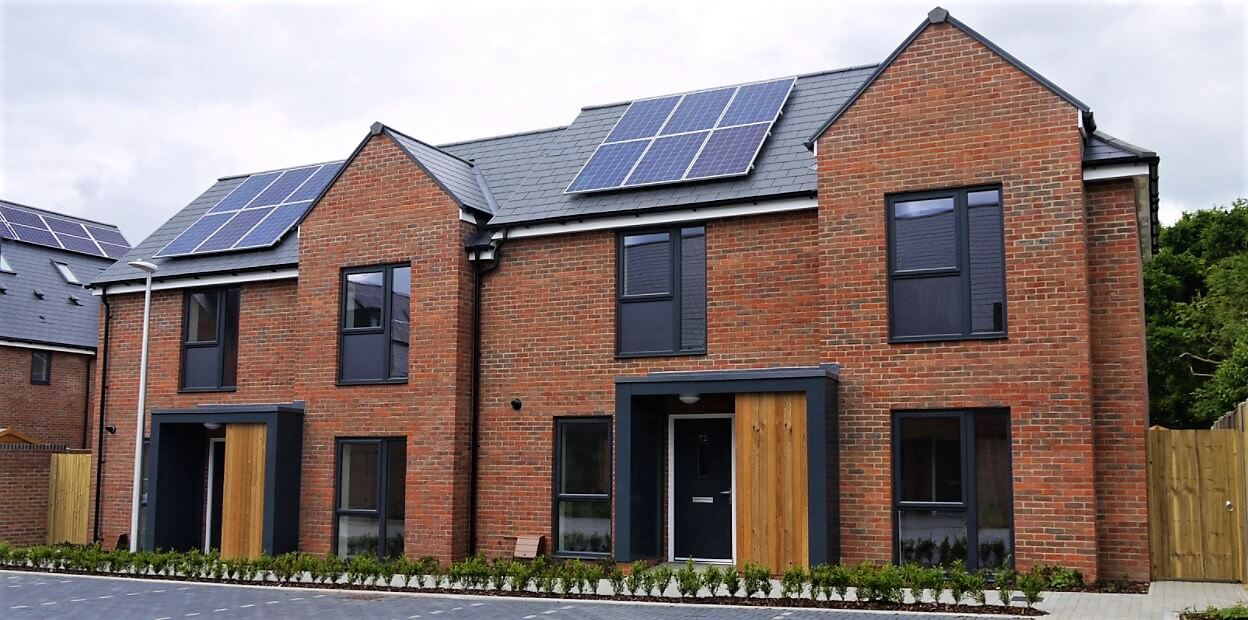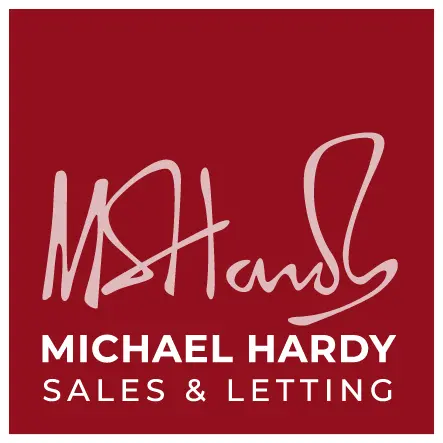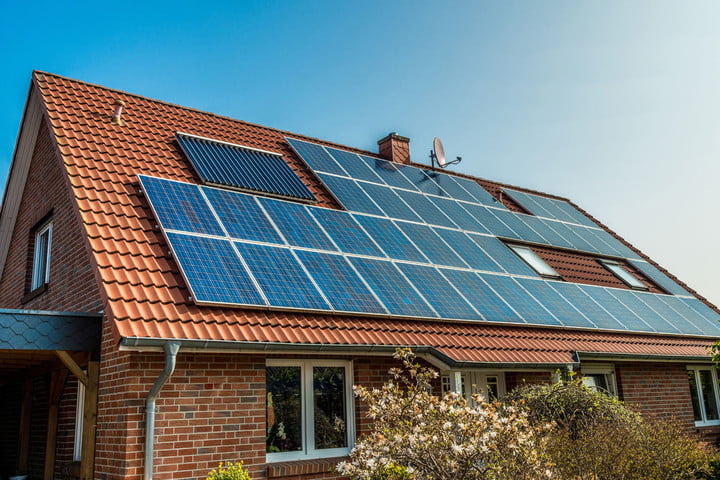The popularity of solar panels has spread over the past few years, as householders have been tempted by the prospect of long-term free electricity and in some cases, an income generated from selling electricity to energy companies. However, the process of buying or selling a home with a solar rooftop array is more involved especially if the solar panels are leased.
What do I need to know about buying a house with solar panels already installed?
When buying a house with solar panels already installed, there are a number of things you should bear in mind.
Firstly, there are several reasons why solar panels have proved popular with homeowners:
- the environmental benefits of using renewable energy rather than fossil fuels
- cheap or free electricity for the home
- the government’s Feed-in Tariff scheme paying for green energy generated
Many homes fitted with solar panels will have had them installed free of charge by a solar power company. The homeowner will have leased the panels from the solar power company, usually for a 25-year term, who then has the right to the Feed-in Tariff payments. The homeowner enjoys low energy bills plus the prospect of the Feed-in Tariff after 25 years.
However, over time, some drawbacks to this initiative have become apparent:
- Some mortgage lenders have issues with the fact that a large part of the roof is leased to a solar power company, not owned outright by the homeowner so make sure you check this with your lender.
- Many of the original solar power companies have ceased trading so it may prove difficult to find out who owns the panels.
- If the power company has assigned the management of the panels to an agent, the agent may charge a fee when the house is sold.
- The terms of the lease with the power company may mean that the homeowner has to gain consent to extend the house or even to sell it! There may also be a clause that means the homeowner has to pay compensation for lost revenue if the solar panels have to be temporarily removed for roof repairs so make sure your solicitor requests a copy of the lease so he can identify if any of these clauses as included.
- In some cases, the solar power company might have the right to lease the roof space indefinitely. If they have not opted out of the 1954 Landlord & Tenants Act (which states that a commercial tenant has the right to remain even after the agreed term of a lease has ended) then legally they could continue to rent the roof area beyond the typical 25-year term if they wanted.
Where the homeowner owns the solar panels outright, the situation is far more straightforward. The occupier will be enjoying the benefit of the Feed-in Tariff and this will automatically transfer to the new owner. However, one thing to bear in mind is that if you take ownership of the panels, you will be responsible for any maintenance costs.
Should I buy a house with solar panels?
The issues surrounding lease agreements can often be resolved. Most mortgage lenders will agree to a loan provided the lease meets certain conditions.
For example:
- The installing company is accredited by the Microgeneration Certification Scheme (MCS)
- The installation is approved and insured.
- The panels can be removed without penalties for missed Feed-in Tariff payments.
The more information the seller can provide at the outset (e.g. copy of the lease, planning and building regulations consent, details of any payments) the easier it will be for your property purchase to progress. Your conveyancer should be able to explain if any of the issues outlined above will affect your property purchase and if there are any major concerns.
When buying a home where the installation has been fully paid for, and therefore owned by the homeowner, the process should go more smoothly. You can move into your new property knowing you will get immediate benefits from reduced energy bills plus the Feed-in-Tariff revenue.
What to consider when selling a home with solar panels?
For many house buyers, the prospect of an energy-efficient home will be very appealing. However, there is a large amount of information that any potential buyer will need to be made aware of.
If your solar panels were leased, you will need to gather as much documentation as possible (as outlined above). More specifically the property buyer’s solicitor might request:
- Sight of the standard 25-year term lease.
- Details of any planning and building regulations consents that will have been required.
- Confirmation that any requirements of the seller’s mortgage lender were complied with.
- Confirmation as to whether there have been any breaches of the terms of the agreement.
- Details in respect of any payments made for the solar panels and who insures the panels.
If the purchaser does not want to take over the lease, there will inevitably be costs associated with termination. You will need to establish who will pay the fees in this situation.
If you own your solar panels, as well as documents about the installation itself, it is important to provide evidence of the benefits to any potential buyer: These should include:
- If possible, electricity bills from before and after the installation took place.
- Feed-in Tariff statements dating back as far as possible.
- An up-to-date service record validating that the system is in good running order.
With either scenario, providing your estate agent with as much information as possible from the outset should prevent unnecessary delays.
This information is provided by Michael Hardy, the Wokingham and Crowthorne estate agent. Contact us today for support selling property in the Wokingham area, or browse our Wokingham properties for sale.


